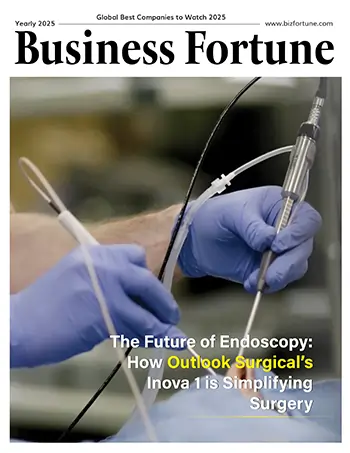Home Innovation Robotics Skild AI secures funding for s...
Skild AI secures funding for scalable AI foundation model for robotics
Robotics

Business Fortune
11 July, 2024
AI robotics startup Skild AI has raised $300 million in Series A funding from Lightspeed Venture Partners, Coatue, SoftBank Group, and Bezos Expeditions led by Jeff Bezos.
Felicis Ventures, Sequoia Capital, Menlo Ventures, General Catalyst, CRV, Amazon, SV Angel, and Carnegie Mellon University were also investors in the round. Skild AI's valuation has increased to $1.5 billion with this investment. The startup plans to hire people for positions in AI, robotics, engineering, operations, and security, as well as to continue growing its model and training datasets in preparation for a commercial rollout of its technology.
Abhinav Gupta and Deepak Pathak, two former professors at Carnegie Mellon University, founded Skild AI in 2023 with the goal of developing a scalable foundation model for robotics that would act as a common, all-purpose brain for different robot embodiments and practical applications. The startup trains its model using a vast dataset that is much greater than that of its rivals. With the help of this model, robots from several industries may carry out a variety of activities, including manipulation, locomotion, and navigation.
In contrast to robots intended for particular uses, Skild AI's model is a general-purpose AI that can be modified to fit a variety of robots and environments. This model allows low-cost robots to work in a variety of environments since it trains on at least 1,000 times more data points than competing algorithms. The model exhibits unmatched generalization and emergent skills across many robots and tasks, ranging from robust quadrupeds managing challenging circumstances to vision-based humanoids doing intricate duties in homes and industries.
The technology developed by Skild AI helps businesses in the manufacturing, warehousing, healthcare, and construction sectors that are facing severe labor shortages. There is a labor shortage in the United States, according to the Chamber of Commerce, with approximately 1.7 million more jobs available than unemployed workers. The National Association of Manufacturers predicts that by 2030, there will be 2.1 million unfilled manufacturing jobs. Skild AI's model can help alleviate these shortages and democratize the cost of robots, making them more accessible across various sectors, by enabling robots to perform novel tasks alongside humans or in hazardous environments.


































